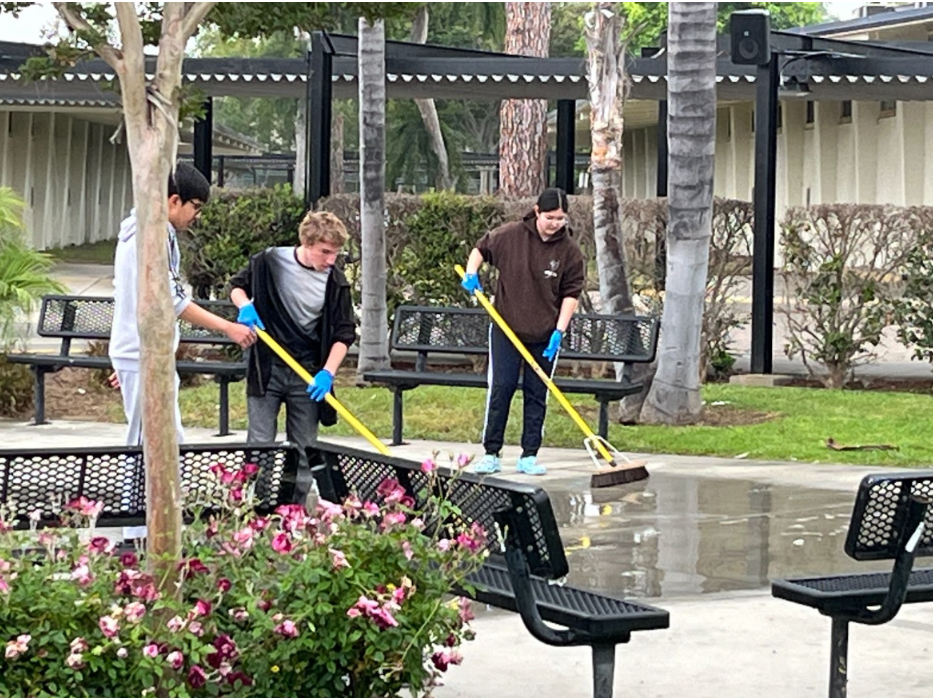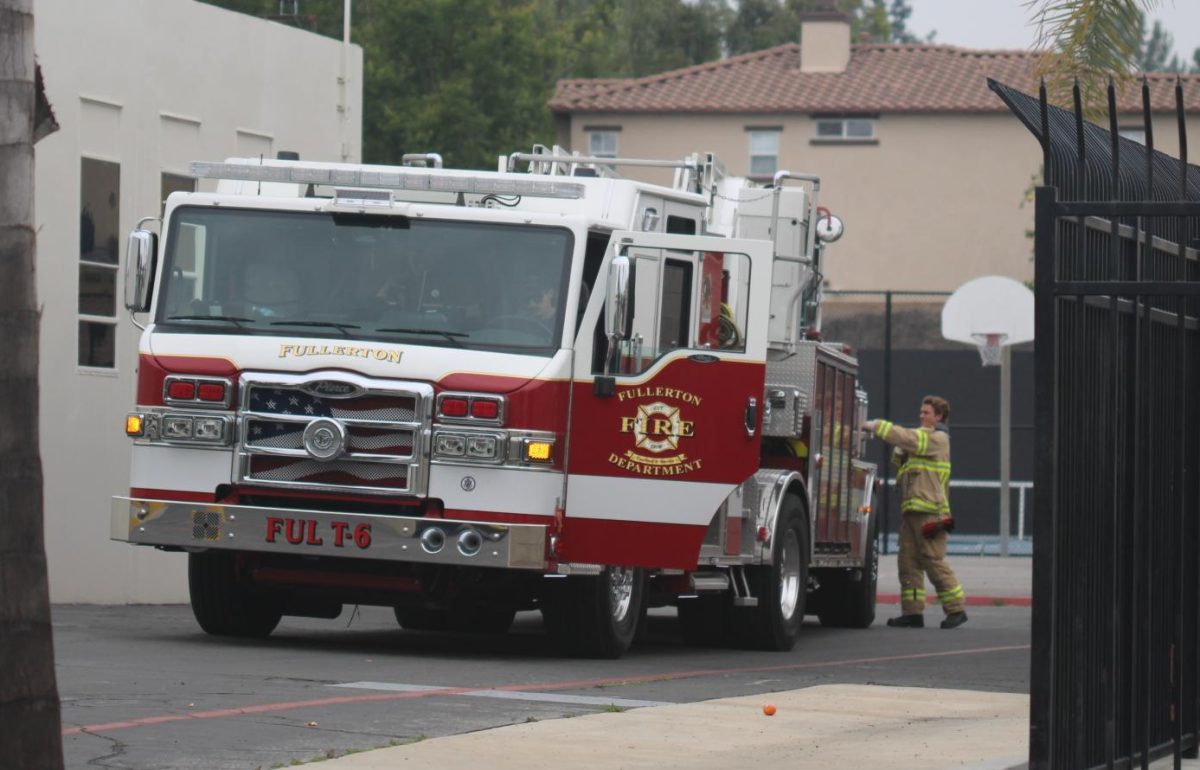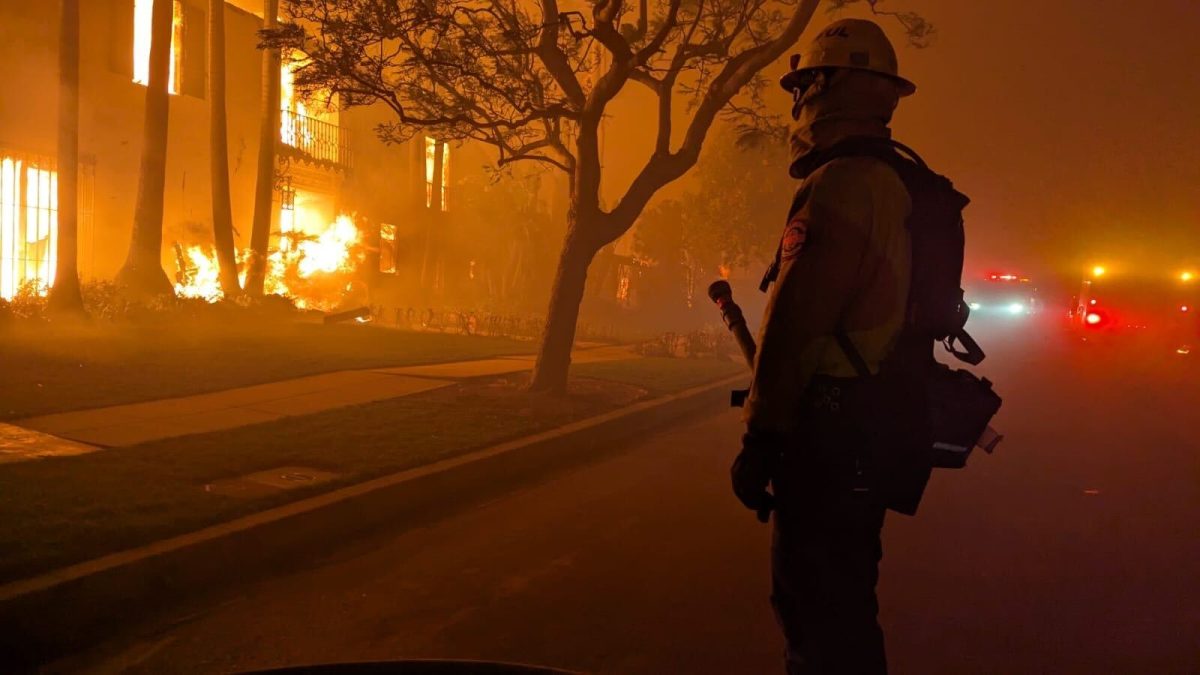“Law & Order” explores recently passed legislation relevant to teachers and students. What impact will these decisions have on Sunny Hills?
California Gov. Gavin Newsom recently signed into law Assembly Bill [AB] 3216, which requires all K-12 public institutions to develop a policy restricting or banning student cell phone usage during school hours. Adminstrators will have until July 1, 2026, to craft how they will implement the legislation.
According to AB 3216, school officials can decide how to enforce student phone use, but if they restrict rather than prohibit it, devices will need to be stored away in some fashion. Still, students must be given access to their phones during emergencies.
The bill, also known as the Phone-Free School Act, is an extension of AB 272, which Newsom signed in 2019. This act grants school districts the authority to regulate cell phone usage during school hours.
Currently, Sunny Hills teachers already have a variety of methods to prohibit phone usage in class, and a common way is through phone pockets — a procedure that some instructors started to implement pre-COVID-19 in 2019.
Social science teacher Robert Bradburn, though, is among those who have yet to use phone pockets.
“My class phone policy is that I have my students put them behind the zipper of their backpack during class, and I rarely have anybody violate that, so it hasn’t been a problem,” said Bradburn, who learned about Newsom’s signing of AB 3216 while scrolling through the news on his own device. “I think that phones are tempting for all of us and distract from learning. … It’s also the fact that many people have been using [phones] for a long time and don’t know what life is like without the phone.”
This led the instructor to create a student discussion about the upcoming phone ban in his second-period International Baccalaureate Economics class on Wednesday, Sept. 25.
Junior Sophia Gentile said she has mixed feelings on the matter but is relieved it won’t affect her as a Class of 2026 graduate.
“Mr. Bradburn showed us an article on the board, and at first, I thought that it was pretty good because when we were in middle school and couldn’t have our phones, it was fine, and I felt like I could focus,” Gentile said. “But when I realized that I now use my phone for my Google Calendar and notes, which are all really important to me, I would totally lose track of things.”
But while Gentile said she supports the ban, junior Dante Gelles disagrees.
“I don’t think the phone is the issue; it’s just like what you do in that class that makes you distracted,” Gelles said. “If phones are banned in high school and then you never learn how to police yourself in class, once you get to college and you have free reign, you’re just going to spiral.”
Nevertheless, Bradburn said the bill, signed by the governor on Monday, Sept. 23, will bring some benefits as students have more face-to-face interactions.
“I think it will make a difference and will create a space for students to explore other ways to spend their time, other things to think about, and probably more people to talk to,” he said.














